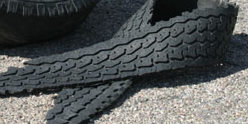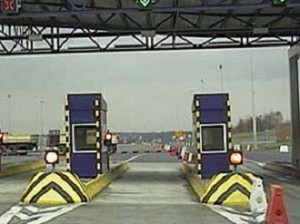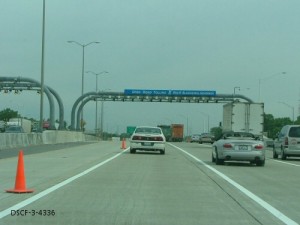Making the long drive home from Florida to Michigan includes both positives and negatives.
In the plus column, I get to have a chunk of time to pray, think and plan. I can also listen to sermon tapes (4 en route, 3 back), and even pen a few blog thoughts (without looking down, of course). I can crank my music up and sing, or I can sit in silence.
Also on the plus side is Jack, a model traveler, who lies down as soon as we hit a high speed. And one more thing. Motoring from south to north as I did today, palm trees give way to flowering crabs and eventually to majestic mountains, a feast for traveling eyes. Even flat farm land offers attractive views of plowed fields, weathered barns and grouped silos.
On the minus side, nearly 20 hours of sit-down time is too much. (Just ask Jack.) And driving through wild weather (sideways rain this time) can be harrowing. Also, the farther we drove, the colder it got. I had to surrender my flip-flops in Nashville. When we pulled in the driveway, it was 32 degrees.
Another minus is trying to bundle gas stops with dog walks, a problem in the cities. Also, exercising Jack late at night in unfamiliar neighborhoods is unsettling. But the most significant minus of driving 1200 miles is the accident potential of so much high-speed driving.
On this trip something scary happened that’s never happened before – twice! Purring along at 70+ miles per hour in semi-crowded traffic, a sudden flash of break lights immediately in front of me and a burst of blue-black smoke forced my foot to the break pedal. In less than a second, cars and trucks ahead were swerving, and my brained was yelling, “Doesn’t compute!”
In both instances, as confusion clouded the situation, a massive slab of black rubber flew past my car, tumbling wildly after exploding off someone else’s tire. As all of us jerked to slower speeds, the culprit was evident, a truck in one case and a horse trailer in the other.
After each crisis had passed, my mind listed the many ways serious injury had been avoided. The only damage in both instances was a few heart-pounding seconds.
I wonder if God was the one protecting us and if his protective angels aren’t preventing all kinds of disasters on a daily basis. People are quick to blame him when natural calamities hit: “How dare he? Why didn’t he stop it?”
The reality is that he’s probably preventing a thousand catastrophes for every one he allows. Maybe hearing the details of these “saves” is one of the reasons our afterlife has to be eternal. Telling all those stories will take a long time!
For now, though, it’s a good idea to daily hunt for the instances when tragedy was avoided, giving God the credit. We’ll stop blaming him and see that the plus column is always much longer than the minus.
”Have no fear of sudden disaster or of the ruin that overtakes the wicked, for the Lord will be at your side and will keep your foot from being snared.” (Proverbs 3:25-26)






